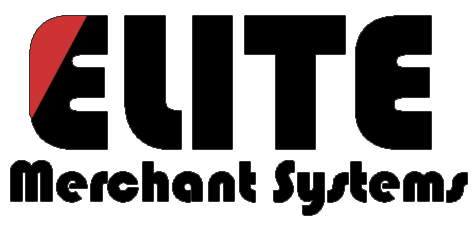Everything your business need.
Smarter, Faster, Easier
Send a Message FOR FREE Consultation
Contact Me
Phone
(305)-707-6102
analysis@elitemerchantsystems.com
Address
5379 Lyons Rd Coconut Creek, FL 33073
The Ultimate Guide to Credit Card Processing
The world of credit card processors can be a confusing one. With so many options available, it’s hard to know which is the best for your business. This guide will cover all you need to know when choosing a credit card processor and provide you with some information on how they work and what they do.
What is credit card processing?
First, let’s start with what a credit card processor is. A credit card processor is a company that helps businesses process payments made by customers using their debit or credit cards. This could be anything from online sales to in-store transactions. When you run a business, it’s crucial to have a good credit card processor to accept payments from your customers.
How Credit Card Processing Works?
When a customer makes a payment with their debit or credit card, the details of that transaction are sent to the credit card processor. The processor will then forward this information to the appropriate bank (the bank that issued the customer’s debit or credit card). This process is known as ‘settlement.
The Different Types of Credit Card Processors
There are three main types of credit card processors: traditional, merchant services, and third-party.
Traditional processors are those who offer both processing services and terminals/ POS systems. They usually have higher rates but also provide more features.
Merchant service providers are companies who only provide processing services. They typically have lower rates but don’t offer as many features as traditional processors.
Third-party processors are companies who provide processing services for other companies. They usually have the lowest rates but don’t offer as many features as traditional or merchant service providers.
Which Type of Processor is Best For Me?
The best processor type for you depends on your business’ needs and budget. If you need a lot of features, then a traditional or merchant service provider may be best for you. If you’re looking for the lowest rates, then a third-party processor may be suitable for you.
No matter which type of processor you choose, it’s essential to make sure they are PCI compliant. This means that they meet the Payment Card Industry Data Security Standard (PCI DSS) and are able to protect your customers’ credit card information.
Credit Card Processor Fees
The main thing to look out for when choosing a credit card processor is the fees they charge. These fees can include:
Transaction fees: This is a fee charged for every transaction that goes through your processor.
Set-up fees: This is a one-time fee charged by the processor when you sign up. Monthly fees: This is a recurring fee that’s charged each month.
Processing fees: This is a percentage of each sale that the processor charges. It’s important to note that not all processors charge processing fees, so be sure to ask before signing up.
What is credit card processing supposed to cost?
The cost of credit card processing can vary depending on the type of processor you choose, the rates they offer, and your business’s size and volume. However, the average cost is around 0.75% to process a debit or credit card transaction.
Choosing a Credit Card Processor
Now that you know what to look for in a credit card processor, it’s time to choose one for your business. Here are some tips for choosing:
Shop around: Don’t just go with the first processor you find. Compare rates and features among different processors to find the best one for you.
Read reviews: Doing a quick Google search will give you an idea of what other businesses think of various processors. This can help make your final decision.
Look for reviews of individual features: Credit card processing is complex, so you may want to look at reviews that focus on specific features like set-up fees or rates.
Don’t forget about payment security!
Choosing a POS System
A point-of-sale (POS) system is a computerized system used to track and manage sales transactions at retail locations. A POS system can include a variety of features, such as:
- Tracking inventory levels and automatically ordering new stock when levels are low
- Printing receipts and invoices
- Processing payments via debit or credit cards
- Generating reports on sales activity
If you’re looking for a way to streamline your sales process, then a POS system may be the right solution for you. What’s more, many processors offer their own proprietary POS systems, which can make the process of choosing one even more manageable.
When choosing a POS system, it’s important to consider the important features of you and your business. For example, if you need a system that can track inventory levels, then make sure to find a system that offers this functionality. Additionally, it’s important to ensure the POS system is compatible with your processor; otherwise, you may have difficulty processing payments.
Finally, be sure to ask around for recommendations before making a final decision – friends and family members who run their own businesses may be able to point you in the right direction.
A point-of-sale (POS) system can help streamline your sales process by tracking transactions and managing inventory levels. When choosing a POS system, it’s important to consider the important features of you and your business. Additionally, be sure to ask around for recommendations before making a final decision.
We hope that this blog post has helped you understand how a credit card processor works and what to look for in one. If you have any questions, please feel free to reach out!
